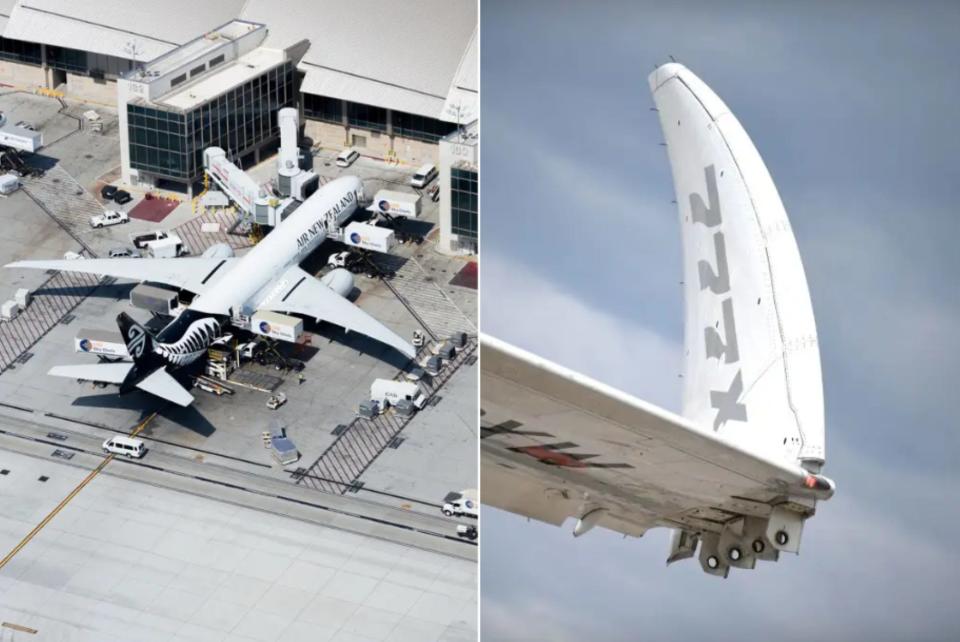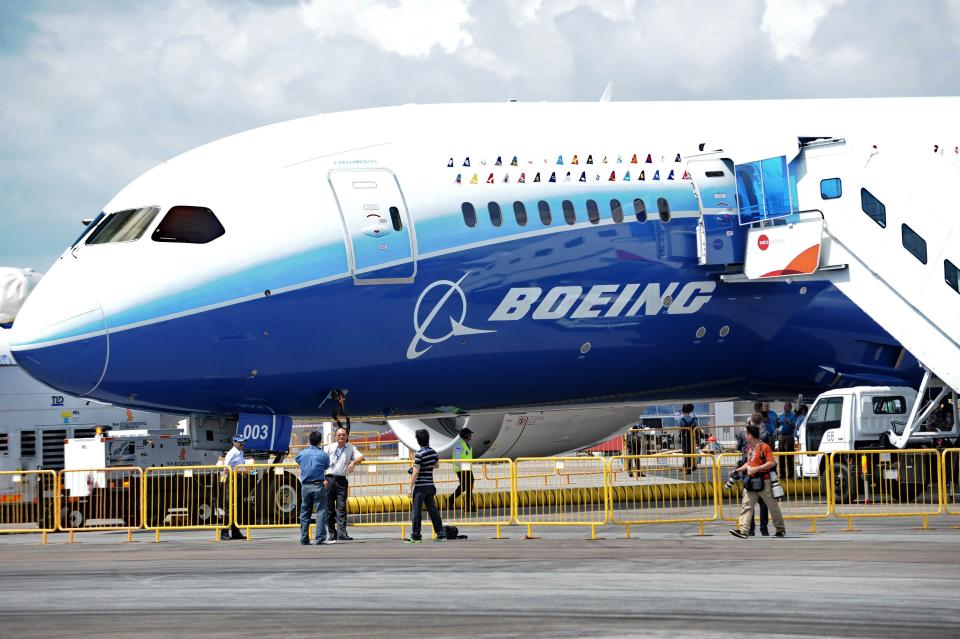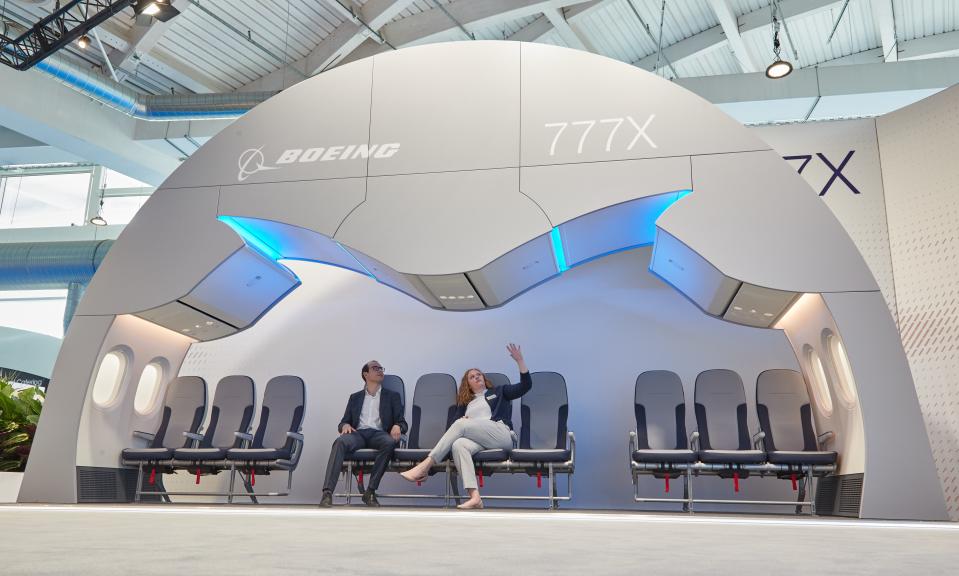-
Boeing’s 777X, its largest passenger plane, is five years behind schedule.
-
With 481 orders from airlines like Emirates and Singapore, much is riding on the new widebody’s success.
-
The jet may face more delays amid heightened scrutiny of Boeing’s commercial airplane production.
Boeing’s 777X is the world’s largest passenger plane in production, complete with revolutionary folding wingtips and 10% better fuel efficiency than competitors.
More than a dozen airlines, including British Airways, Emirates, and Singapore Airlines, have placed 481 orders for the twin-engine aircraft that was supposed to start flying passengers by 2020.
But the new jet, already five years behind schedule, has Boeing $1.5 billion in the hole. With the planemaker mired with other 737 and 787-related fires, adding an entirely new plane to the mix has become even harder.
Boeing now expects the 777X, which will come in the larger 777-9 and smaller 777-8 variants, to be certified in 2025. And at least one waiting airline boss thinks it may be even later.
A Boeing spokesperson told Business Insider it is working closely with regulators in the 777X’s certification, noting the jet has completed thousands of test flights to date.
“Our team remains focused on executing this comprehensive series of tests and conditions on the ground and in the air to demonstrate the safety, reliability and performance of the airplane,” they said, reaffirming the 2025 target.
Delays could stretch even longer as Boeing searches for a new CEO and clears a backlog of almost 6,200 unfilled orders, experts said. The FAA slowed deliveries after the Alaska Airlines door plug blowout in January and capped Boeing’s 737 production.
“With new management at Boeing, I’ll feel a lot better at certification prospects for this jet,” aviation analyst Richard Aboulafia told BI. “In fact, until new management arrives, there’s really nothing the company says that should be taken seriously.”
A lot is riding on the new 777X, including proving its modified design was the right strategy over building a new plane from scratch. Boeing will also need to earn back the trust of airlines that have raised concerns about the planemaker’s ability to certify and deliver planes, experts said.
Boeing also doesn’t want to fall further behind rival Airbus. The European planemaker’s A321neo family has outsold the 737 since 2019, and it’s already launched the 777X’s competing Airbus A350 widebody, which has some 1,300 orders to date from the likes of Korean Air, Delta Air Lines, Singapore Airlines, and Lufthansa.
The 777X’s familiarity and more spacious 10-abreast cabin are huge selling points against the A350, which is smaller than the 777-9 model but cheaper and longer-ranged.
Boeing needs to prove it can safely update an old aircraft
Unlike Airbus’ A350, Boeing based the 777X on its classic 777-300ER but modified it to be larger and more efficient. The 777-300ER is Boeing’s best-selling 777 variant, selling over 800 units since 2000.
Key differences between the two 777 types are the size, engines, and wings. The new plane has tips that fold up to ensure it fits in the same gate space as the classic model.

Operationally, the 777X is similar to its predecessor — and that’s by design. Its flight deck resembles that of Boeing’s 787 Dreamliner — meaning pilots can jump between all aircraft with little extra training, and airports save on infrastructure costs.
Boeing’s last completely new widebody plane was the 787 way back in 2003. While the Dreamliner is a cash cow with over 2,300 orders and about 1,100 delivered, the planemaker wasn’t ready to invest in another challenging, time-consuming, and expensive clean-sheet widebody this time around.


But opting for the cheaper update has already caused problems before.
When building the 737 Max — an update to the popular narrowbody — Boeing installed a system that was responsible for crashing two planes in 2018 and 2019.
The system, known as MCAS, was new. But Boeing didn’t clue airlines in because it was selling the Max as an enhanced version of the next-generation 737 family rather than as an entirely new plane and needed it to require minimal pilot training.
Similar design flaws on its 777X would further plague Boeing’s chance at revival.
“There’s a lot of things that Boeing’s going to have to do that was not done on the 777-300ER,” Aviation Week’s chief regulation and safety editor said in a July 2023 podcast. “The biggest thing, again, as we’re seeing on the 737s, is validating these system safety assessments that have to do with making assumptions about pilot reactions during non-normal situations.”
The 777X needs the trust of key Middle Eastern customers
Middle Eastern carriers Emirates, Qatar, and Etihad Airways make up the bulk of the 777X orders, taking interest in both the $442 million 777-9 and the $410 million 777-8.
Emirates added 90 more 777Xs to its order book in late 2023, bringing its total to 205, 35 of which are for the smaller variant. Qatar and Etihad Airways have also ordered 74 and 25 777-9s, respectively, for a collective 304 777X planes.
The 777X’s size and efficiency make it favorable for these carriers’ strong hub-and-spoke networks that rely on big planes to shuttle as many people as possible between cities at once. The three carriers plan to phase out fuel-hungry planes like the A380 quad-jet to be replaced by the more efficient 777X.


Despite the substantial investment, Emirates president Tim Clark has voiced his concern over Boeing’s 777X delays. According to Reuters, the airline is flying costly older jets longer than expected, eating into its bottom line.
Still, Clark told The Air Current the 777X is a promising plane but noted that its problems are bad for airlines relying on Boeing to fulfill their demand needs because it’s taking so long to certify.
Boeing is likely too far in to cancel the program, Aboulafia said, and airlines and Boeing will eventually benefit once the new widebody hits the market.
“The 777X is definitely worth pursuing,” Aboulafia said. “It’s the largest jetliner on the market, which is always useful for slot-constrained airlines. And the order book is respectable, if not fantastic, for a program at this stage.”
Read the original article on Business Insider
Source Agencies

